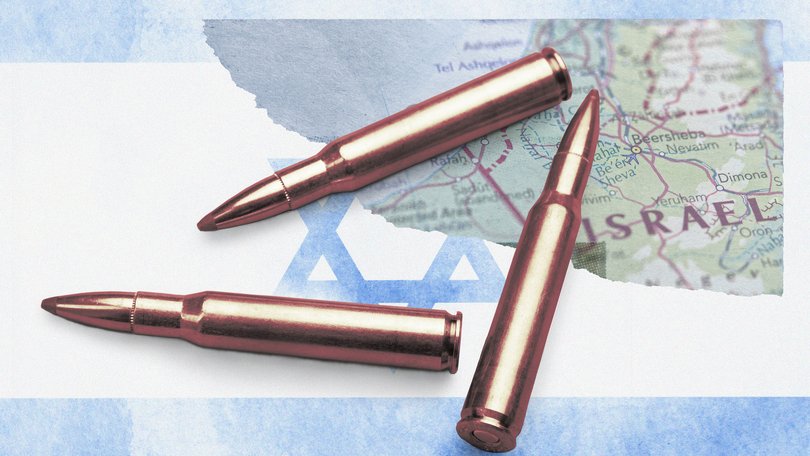Australian military companies face new Israel ban as Department of Defence quietly tightens trade restrictions
Industry figures claim Australian firms have received written advice from the Commonwealth regulator outlining the latest restrictions taking effect on November 4.

Local military companies claim new restrictions are being applied on material sent from Australia to Israel, but the Department of Defence is declining to comment on the move citing “national security and commercial in confidence reasons”.
Industry figures, speaking on the condition of anonymity, have told The Nightly that over recent days a small number of Australian firms have received written advice from the Commonwealth regulator outlining the latest ban coming into effect on November 4.
They claim correspondence sent by Defence Export Controls (DEC) reveals a new condition is being imposed under “Customs (Prohibited Exports) Regulations 1956”, meaning licence holders will no longer be allowed to send “approved goods” to Israel.
Sign up to The Nightly's newsletters.
Get the first look at the digital newspaper, curated daily stories and breaking headlines delivered to your inbox.
By continuing you agree to our Terms and Privacy Policy.DEC has responsibility for the movement of Defence-related goods, technology and services, both within and outside Australia, and assesses permit applications to export military and dual-use items overseas.
The Albanese government has long insisted that “no Australian weaponry” has been exported to Israel during the Gaza war, although the department continues to review dozens of permits for exports of military material that are often sent abroad for tests or repairs.
Greens Senator David Shoebridge claims any new ban would prove the Albanese government has long known Australian military equipment has been going to Israel and that it could have been stopped with an email.
“After two years, hundreds of thousands of Australians taking to the streets, international legal cases and a genocide unfolding before our eyes the Albanese Government is only now, quietly, pulling back from this trade,” he tells The Nightly.
“This has all the signs of legal advice being provided to a government desperately trying to get its talking points ready for before the final confirmation from the ICJ (International Court of Justice) that Israel’s assault on Gaza is a genocide.”
“This is a real victory for those millions of Australians who have been calling for peace and justice,” Senator Shoebridge claims.
“While this goes some way to reducing Australia’s complicity, it leaves programs like the F-35 fighter jet and companies funnelling weapons through the US as part of AUKUS Pillar 2, still sending weapons and weapons parts to Israel”.
“If the Albanese Government is finally accepting we cannot be funnelling weapons or weapons parts to Israel, then it cannot cherry-pick when that rule applies,” he added.
The Nightly has asked the Department of Defence for details of any new restrictions coming into effect this week, but a spokesperson responded saying: “Defence cannot comment on individual permits (and conditions) due to national security and commercial in confidence reasons”.
Last month Defence told Parliament that 22 permits with Israeli end users have been issued since October 2023, five of which have “expired”, while the remaining 17 are “solely for the purpose of Australian Defence Force and Commonwealth capabilities”.
Prior to the October 7 Hamas attacks, 66 permits were issued by Defence and according to the department, a review ordered by the government of all export items has concluded, with 37 of them requiring no further action.
“Australian law stipulates that the defence minister or their delegate must grant an export permit to anything that we would regard to be a defence item,” Defence Deputy Secretary Hugh Jeffery told a Senate estimates hearing on October 9.
“We distinguish between those items that are lethal, non-lethal or dual use. These items are registered on what we called the Defence and Strategic Goods List,” he explained.
During this year’s election Prime Minister Anthony Albanese again insisted “we do not sell arms to Israel” following revelations the country’s military had completed trials of an advanced remote weapons system made by a Canberra-based defence supplier.
In 2024 Israeli company Elbit Systems was awarded a $917 million contract to provide “advanced protection, fighting capabilities and sensors” for the Army’s new Infantry Fighting Vehicles being built in Victoria by Korean-owned company Hanwha.

